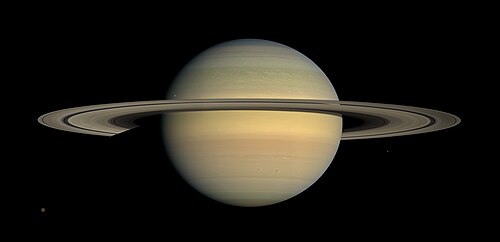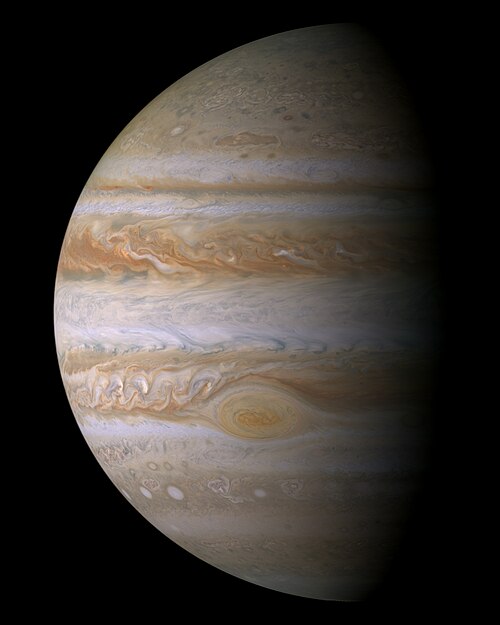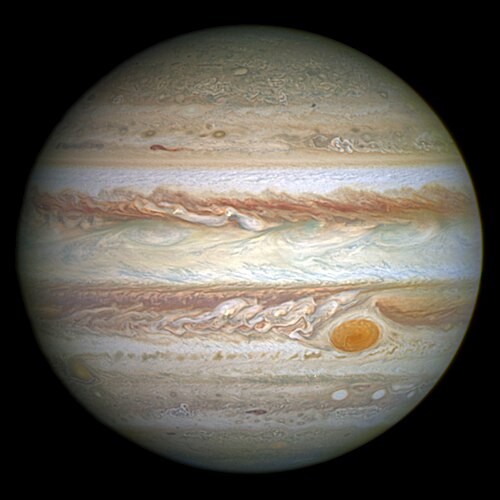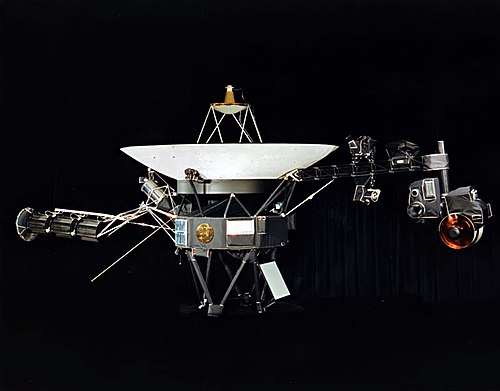Saturnnoun
The Southeast Asian butterfly Zeuxidia amethystus, family Nymphalidae.
Saturnnoun
One of the elder and principal deities, the son of Cœlus and Terra (Heaven and Earth), and the father of Jupiter. The corresponding Greek divinity was Kro`nos, later CHro`nos, Time.
Saturnnoun
One of the planets of the solar system, next in magnitude to Jupiter, but more remote from the sun. Its diameter is seventy thousand miles, its mean distance from the sun nearly eight hundred and eighty millions of miles, and its year, or periodical revolution round the sun, nearly twenty-nine years and a half. It is surrounded by a remarkable system of rings, and has eight satellites.
Saturnnoun
The metal lead.
Saturnnoun
a giant planet which is surrounded by three planar concentric rings of ice particles; 6th planet from the sun
Saturnnoun
(Roman mythology) god of agriculture and vegetation; counterpart of Greek Cronus;
Saturn
Saturn is the sixth planet from the Sun and the second-largest in the Solar System, after Jupiter. It is a gas giant with an average radius of about nine and a half times that of Earth.
Jupiternoun
A class of planets that are similar in mass to Jupiter.
Jupiternoun
The supreme deity, king of gods and men, and reputed to be the son of Saturn and Rhea; Jove. He corresponds to the Greek Zeus.
Jupiternoun
One of the planets, being the fifth from the sun, the brightest except Venus, and the largest of them all, its mean radius being about 43,345 miles (69,758 kilometers), almost exactly one-tenth that of the sun. It revolves about the sun in 4,332.6 days, at a mean distance of 5.2025 from the sun (778,140,000 km), the earth's mean distance (the astronomical unit) being taken as unity. It has a mass of 1.901 x 1027 kg, about one-thousandth that of the sun, and more than the remainder of the planets combined. It has an average solar day equal to 9.842 earth hours. The rapid revolution causes a noticeable flattening at the poles; the diameter at the equator is 71,370 km, and at the poles 66,644 km.
Jupiternoun
the largest planet and the 5th from the sun; has many satellites
Jupiternoun
(Roman mythology) supreme god of Romans; counterpart of Greek Zeus
Jupiter
Jupiter is the fifth planet from the Sun and the largest in the Solar System. It is a gas giant with a mass more than two and a half times that of all the other planets in the Solar System combined, but slightly less than one-thousandth the mass of the Sun.
















































